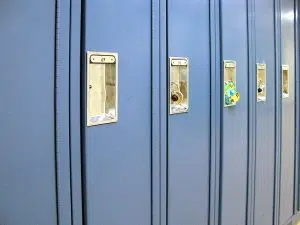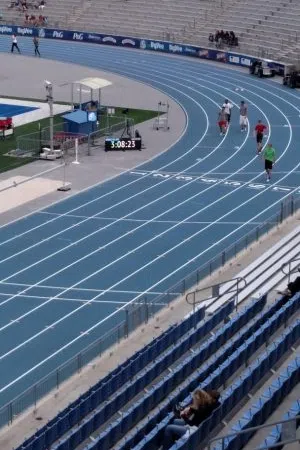(Des Moines) Senators sent legislation on Iowa’s elections to Gov. Kim Reynolds’ desk Monday that included provisions on verifying Iowa voters’ citizenship status.
The Senate also passed bills addressing the governor’s math instruction proposal, vaccines for a sexually transmitted virus, fireworks and the minimum age for firearm possession.
House File 954, passed 32-15, was a bill proposed by Iowa Secretary of State Paul Pate that would allow the Secretary of State’s office to contract with federal and state agencies, and with private entities, for voter roll verification and maintenance.
The bill also laid out steps for setting a voter’s registration status as “unconfirmed” in cases where the state registrar or a county commissioner “has received information from a reliable source indicating that the registered voter is not qualified.” A “unconfirmed” voter’s status would be changed to “active” after they provide proof that they are qualified to vote under the legislation.
The bill also allows for a voter to be challenged at the polls over their citizenship status. A challenged voter is allowed to present precinct election officials evidence or facts to prove they are qualified to vote. If the challenge is not withdrawn after this procedure, the voter would cast a provisional ballot.
While Pate and Republican lawmakers said these measures would prevent non-U.S. citizens from illegally participating in Iowa elections, Democrats said the measure could lead to discrimination at Iowa polls. Sen. Matt Blake, D-Urbandale, said he was concerned about allowing challenges on the basis of citizenship at the polls.
He said that these challenges can be brought by third-party poll watchers, who would have the ability to challenge the qualifications of any voter they feel could potentially be a noncitizen. Curing the ballot in these cases could be more difficult than other challenges allowed at the polls to a person’s age or residence, Blake said.
“The characteristics of trying to prove citizenship at the polls is different than residency and other factors that are currently questions that can be asked,” Blake said. “You may have a driver’s license that’s updated that proves where you live. You may have your bill in the car related to that you live in a particular spot. Adding the question of whether somebody is a citizen requires a whole set of documents that — I don’t know, I don’t carry around my birth certificate.”
These changes were proposed following Pate’s guidance to county auditors ahead of the 2024 general election to challenge the ballots of of 2,176 voters identified as “potential noncitizens” based on state information. In March, Pate said of the 2,176 individuals on the list, 277 were confirmed to not be U.S. citizens, and 35 noncitizens cast ballots in Iowa that were counted in Nov. 5, 2024 election.
Blake and other Democrats said the small number of people on Pate’s list of potential noncitizens — and a smaller percentage of the overall number of Iowans who participated in the 2024 general election — showed that the measure was unnecessarily making it more difficult for Iowans to vote while raising mistrust in the state’s elections.
But Sen. Ken Rozenboom, R-Oskaloosa, the bill’s floor manager, said the fact that there were any noncitizens who participated in Iowa’s elections showed the need for the measure.
“Do you hear yourself? Do you hear yourself?” Rozenboom said. “Only 40 noncitizens voted in last year’s election in Iowa, and only 35 of those were counted. As a state that has a long history of conducting elections that provide timely voting results that are widely trusted, in order to maintain the integrity of our system, it’s important that we update our election laws as conditions and challenges change. … We’ve had elections in Iowa for congressional races decided by seven votes and legislative races, recently have been very close. This bill provides more tools for our elections officials to use to maintain that long standing tradition of integrity of Iowa’s election process.”
The bill also included a ban on ranked choice voting. Sen. Sarah Trone Garriott, D-West Des Moines, introduced an amendment, which failed, to allow local governments to conduct elections using ranked choice voting. The voting method, also known as instant runoff voting, has voters order candidates on a ballot from their first to last choice, with a candidate winning if they receive the majority of first-choice voters. If there is not a clear winner, the candidate with the least votes is eliminated, and voters who chose that candidate as their first choice have their votes redistributed to their second choice — a process which repeats until one candidate wins the majority of votes.
Other Senate action
The election bill was just one of several measures passed by lawmakers in the Senate on their first day of debate since the second funnel deadline. Other bills passed Monday include:
Mathematics instruction: Senators approved House File 784 in a 46-1 vote, sending it to Reynolds. The bill is the governor’s proposal seeking to improve Iowa students’ mathematics aptitude after the 2024 National Assessment of Educational Progress (NAEP) found mathematics scores decreased for both fourth and eighth graders. The legislation would require Iowa schools to assess K-6 students’ math skills at least three times a year. If students are deemed “persistently at risk,” schools would be required to implement a personalized mathematics plan for the student, alongside other intervention strategies, to help the child reach grade-standard proficiency.
The Iowa Department of Education would also be required by the bill to develop and distribute a comprehensive mathematics plan to Iowa schools to increase math proficiency, and provide mathematics instructional aid for teachers and parents.
Reynolds released a statement Monday celebrating the bill’s passage.
“One of the greatest predictors of future success in the classroom and workplace, along with early literacy, is mathematics competency,” Reynolds said in a statement. “At an early age we need to identify children who are not yet proficient in math and ensure they receive the personalized help they need to build a strong foundation. We will support our teachers with evidence-based professional development and ensure all students receive math instruction in the way we know it works.”
Vaccination of minors for sexually transmitted diseases: Senate File 304 would remove a current exemption in Iowa law allowing minors to consent to receive vaccinations for sexually transmitted infections, like the HPV vaccine, without their parent’s permission. Sen. Janet Petersen, D-Des Moines, said the bill would prevent children from accessing a vaccination that can prevent cancers caused by human papillomavirus infections. She also said the measure does not acknowledge the fact that minors who are seeking this vaccination may be the victims of child sex abuse.
“The truth is, more children in Iowa are survivors of child sex abuse than any one of us want to believe, and oftentimes, that abuse is occurring in the very house where they’re being raised,” Petersen said. “This legislation puts these kids at an increased risk by potentially putting the decision on whether or not they can do anything to protect their body … in the hands of someone who is raping them.”
Sen. Sandy Salmon, R-Janesville, said the bill only applies to vaccinations, and does not change other sections of Iowa law that allows minors to receive medical care related to the prevention, diagnosis or treatment of sexually transmitted diseases or infections without their parents or guardians’ consent.
Fireworks: Senate File 303, a bill passed 31-16 after it was deferred by lawmakers in March, would prohibit county boards of supervisors and city councils from placing restrictions on the use of fireworks on July 3, 4 and Dec. 31 outside of existing restrictions in Iowa Code on fireworks. Local governments would still be allowed to set restrictions on fireworks for other days.
“This is a simple bill about freedom in order to ensure that Iowans will be able to truly celebrate in the grand American tradition of fireworks on our holidays,” Sen. Cherielynn Westrich, R-Ottumwa, said.
Minimum age for acquiring firearms: House File 924, sent to the governor with a 33-14 vote, lowers the minimum age for possessing and carrying a firearm, and for permitting, from age 21 to age 18. The measure still sets the age limit at 21 and older for permits to acquire a handgun.
Sen. Scott Webster, R-Bettendorf, said the bill was prompted by the U.S. Eight Circuit Court of Appeals decision that found a Minnesota law limiting firearm permits to people age 21 and older was unconstitutional. He also said he supported the measure as a way to ensure Iowans between the ages of 18 to 20 have access to their constitutional rights.
“As a father of an 18-year-old … I believe that my daughter has the constitutional right to be able to defend herself, no different than anybody else,” Webster said. “She’s 18 years old. She’s an adult, she can vote. She has that right.”













